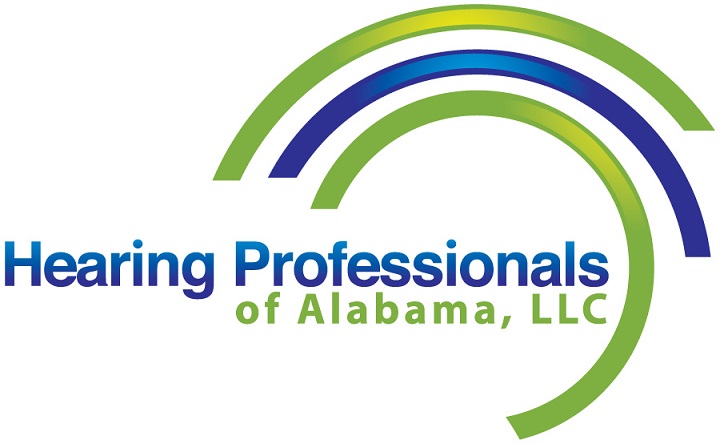Understanding Your Hearing Test Chart and Results
After a hearing test, you might receive a chart filled with numbers and

By: admin | April 30, 2024
Hearing loss is a common problem many of us face, often considered a normal part of getting older. A common misconception is that our diet doesn’t really impact our hearing health. But that’s not entirely accurate.
In reality, the food we consume is crucial for our overall health, including our hearing. Just like certain nutrients can improve eye health or heart function, specific vitamins and minerals can help safeguard against hearing loss. This doesn’t mean that diet alone can prevent or cure all hearing loss – factors like genetics and exposure to loud noises also play a significant role. But, understanding the connection between nutrition and hearing health gives you another way to maintain your hearing as you age.
Let’s dig deeper into hearing loss. It’s not just about sounds becoming fainter; it’s a complex process involving various parts of your ear.
In layman’s terms, hearing loss can happen when any part of the ear or the auditory system isn’t working properly. It could be due to damage in the outer, middle or inner ear, or even in the auditory nerve that carries sound signals to the brain. Understanding this can help you take proactive steps to maintain your hearing health.
Now that we’ve got a handle on hearing loss, let’s discuss how nutrition affects our hearing health. It’s an aspect that often gets overlooked, but it’s vital.
Like the rest of our body, our ears need a balanced diet rich in certain nutrients to function at their best. For example, foods high in omega-3 fatty acids and vitamin D have been linked to a lower risk of age-related hearing loss. So, when planning your meals, keep in mind that what you eat can influence your hearing health!
Let’s examine the intriguing connection between diet and hearing health. This relationship may seem unexpected, but research shows a clear link.
Certain nutrients play a crucial role in maintaining good hearing health. For instance, antioxidants like vitamins C and E can help protect your ears from damage by fighting harmful free radicals in your body. Additionally, minerals like magnesium and potassium are essential for the proper functioning of your inner ear.
Adding these nutrients to your daily diet can help preserve your hearing abilities. So, when you’re at the grocery store, think about adding foods rich in these vitamins and minerals to your shopping list!
Building on the importance of diet for hearing health, let’s look at the specific nutrients that can support your hearing. These essential nutrients can give your hearing health a much-needed boost, enhancing its resilience against potential damage.
First off, B vitamins, especially folate and B12, are crucial for maintaining good hearing. They help regulate the fluid levels in your ears and aid in the production of red blood cells, which are vital for carrying oxygen to the ear tissues. Secondly, minerals like zinc are important as they support your body’s immune system and help ward off infections that could potentially harm your ears. Keeping these key nutrients in mind when preparing meals can significantly support your hearing health!
As we continue discussing nutrition’s role in hearing health, let’s focus on antioxidants. These compounds are often referred to as the protectors of your ears.
Antioxidants, including vitamins A, C and E, along with minerals like selenium and manganese, play a significant role in protecting your hearing. They work by neutralizing harmful free radicals in the body that can cause damage to your cells, including those in your ears. By incorporating foods rich in these antioxidants into your diet, you can help safeguard your ears from potential harm.
Additionally, certain antioxidants like coenzyme Q10 (CoQ10) have shown promise in preserving hearing health. Studies suggest that CoQ10 may help protect against drug-induced hearing loss and age-related decline in auditory function. So, when planning meals or shopping for groceries, consider adding antioxidant-rich foods like berries, nuts and seeds, leafy greens or fish to support your ear health!
Let’s now look at the benefits of omega-3 fatty acids for our hearing health. Omega-3s are essential fats that play a vital role in the body and provide numerous health benefits. Interestingly, these fats are also linked to maintaining good auditory health.
Omega-3 fatty acids, found abundantly in fish like salmon and tuna, have been associated with a lower risk of age-related hearing loss. Studies suggest that these fats may help keep your inner ear healthy and functioning optimally. This makes them an important part of a diet aimed at preserving hearing health.
However, it’s important to remember that while omega-3s can contribute to maintaining good hearing, they’re not a cure-all solution. It’s still vital to protect your ears from excessive noise and seek regular check-ups with your audiologist.
Common FAQs about omega-3 fatty acids and hearing health:
Moving on from the benefits of omega-3 fatty acids, let’s now consider the impact of sodium on our hearing abilities. Sodium, a common component in our diets, often goes unnoticed when discussing nutrition and hearing health. However, it’s important to understand that excessive sodium intake can potentially affect your ability to hear.
Let’s discuss how dehydration can impact your hearing health. Dehydration, which occurs when your body doesn’t have enough water to carry out normal functions, can affect various aspects of your health, including your hearing.
Let’s now consider how adopting certain dietary changes can enhance your hearing health. It’s a strategy that might not be at the forefront of your mind, but it can make a significant difference.
Think of it like tuning a musical instrument; just as fine adjustments can improve the sound quality, small dietary changes can positively impact your hearing health. For instance, reducing sodium intake or increasing hydration levels can help maintain optimal ear function. So, when planning your meals or shopping for groceries, remember these dietary tweaks to support your hearing health!
Let’s now turn our attention to superfoods that can boost your hearing abilities. Superfoods, often hailed for their high nutrient density, can also play a significant role in maintaining and enhancing your auditory health.
These nutrient-packed foods are not just beneficial for your overall health but specifically for your hearing as well. They are loaded with essential vitamins and minerals that help keep your ears functioning at their best.
For instance, foods like bananas and avocados, rich in potassium and magnesium respectively, help regulate fluid levels in the inner ear and protect against age-related hearing loss. Similarly, dark chocolate with its high zinc content boosts your body’s immune system, helping ward off ear infections. So, when shopping for groceries or planning meals, consider adding these superfoods to enhance your hearing abilities!
Moving on from the benefits of superfoods, let’s now discuss foods that you might want to avoid or limit to protect your hearing health. This is an often overlooked aspect of diet and hearing health, but it’s equally important.
While it’s true that certain foods can enhance your auditory well-being, others might have a negative impact. For instance, excessive intake of salt can lead to hypertension which in turn may affect your hearing. Similarly, high sugar levels in the body can damage the delicate nerves in the ear, leading to hearing loss. Alcohol too has been linked with an increased risk of hearing loss as it reduces blood flow to the inner ear. Thus, being mindful of these food items and moderating their intake can help maintain your auditory health.
Let’s talk about how to create a balanced diet for optimal ear health. It’s not as complicated as it might sound!
A balanced diet for ear health involves incorporating a variety of nutrient-rich foods while limiting those that could potentially harm your hearing. Here are some tips to help you get started:
Nutrition plays a pivotal role in every aspect of our health, including our hearing abilities. It’s essential to remember that the food choices we make today can impact our hearing health tomorrow. By incorporating nutrient-rich foods into your diet and staying well-hydrated, you’re taking proactive steps towards maintaining optimal auditory function.
However, it’s also important to remember that nutrition is just one piece of the puzzle. Regular check-ups with an audiologist are vital for early detection and management of any potential issues. If you have questions or concerns about your hearing health or want more information on how nutrition can support it, don’t hesitate to reach out.
This article is for informational purposes only. Always consult your primary care physician or healthcare provider before making any changes to your diet. Personalized advice from a qualified medical professional is crucial, taking into account individual health conditions and medical histories.

After a hearing test, you might receive a chart filled with numbers and
By: admin | January 19, 2026

Hearing changes affect more than just understanding words in conversation.
By: admin | November 18, 2025

When you think about hearing loss, you might picture loud concerts,
By: admin | September 24, 2025
